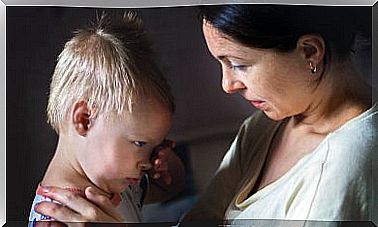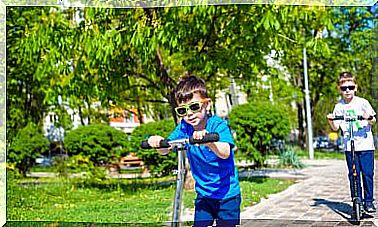Demotivation In Children: How To Detect And Deal With It?

When we talk about children, we automatically think of games, racing, and fun. The moment these actions disappear, you know that something is not right. The question, in this case, is, what can cause demotivation in children?
Motivation in the human being is responsible for the individual to carry out their planned activities one hundred percent. If it did not exist, it would be in static mode, without meaning.
Starting from that point, demotivation in children is a very serious issue, because it decreases performance in all aspects of their lives.
Many parents, encountering demotivation, seek professional help. The reason is that they are at a crossroads because they do not know the causes that could have generated it.
In most cases, parents are concerned and alarmed at not knowing how they can help motivate their children. In many cases, in addition, they lose their cool.
Symptoms of demotivation in children
The main thing is to know how to detect demotivation in children. The most common signs that a child faces it are the following:
- An unmotivated child has no desire to do anything, no homework, no games.
- He is not driven by any hobby.
- It shows lack of energy, apathetic.
- Tends to look like a lazy child.
- Does not show receptivity to perform any activity.
- They carry out only the tasks that are required of them, without any initiative.
- He does not enjoy doing any activity.
- He does everything fast, simply by complying.
All these symptoms are normal, since demotivation in children is very common. You just have to take things slowly and not let it drag on for too long.

The paper of the parents
It is important that parents are vigilant to avoid certain behaviors that promote demotivation in children. Here are some examples:
- That the children feel poorly cared for.
- Not making them understand what is the reason or objective of the things they do.
- Only impose activities on them without leaving time and space for them to develop the ones they really want to do.
- Assigning them very difficult tasks that are beyond their capabilities.
- They do not value what they do, so they do not feel that their effort is valued.
All this influences that the child becomes demotivated and lacks enthusiasm in carrying out any activity. Therefore, it is advisable to avoid these errors.
Three causes that cause demotivation in children
There are some factors that are pointed out as the main culprits of demotivation in children. The first is biological: poor diet and, therefore, malnutrition. A hungry child is not capable of performing as well as a well-fed one.
The second is social; Difficulty integrating, adapting to a group, school bullying or school failure are their modes of presentation.
Finally, there is the psychological: low self-esteem, the fear of making mistakes and failing. Bullying is another of the main demotivating factors in children.
In this sense, it is best to evaluate yourself as parents and review the infant’s environment to detect what is failing and take action. It is always good to consider the abilities of children to determine what activities they can develop. In this way, frustration will be avoided.
Another important aspect is to verify that the child sleeps the necessary hours, has a balanced diet and has the love of both parents. As can be seen, most of these measures must arise in the home itself.
Demotivation in the school environment
In the event that demotivation in children takes place in the school environment, the following questions should be answered: What demotivates it? How can it be helped?
In many cases, the teacher is unaware of the student’s abilities. Then, he evaluates it in a very basic way, as lacking in merit and leaving aside the affective needs that the child may have.
It is the teacher’s job to communicate immediately with the parents to make the situation known when noticing that the student does not comply with school activities. The joint work of the teacher and the family helps to effectively counteract demotivation in children in less time.

How to avoid demotivation in children?
Many specialists suggest that to avoid demotivation in children that it is necessary to talk with the little ones daily. In this way, it is possible to know whether or not they are comfortable with the activities they carry out.
If the child feels supported by his parents and teachers, he will be able to see in himself the strength necessary to carry out his homework optimally and with joy. The offer of prizes and penalties for having carried out or not an activity must be fulfilled.
However, reward motivation should not be used frequently; the child may limit himself to doing his chores only for the reward and not out of conviction that it is his duty. It is necessary to teach them to be autonomous, have freedom of thought and actions and fill them with options so that they can make their own decisions.
For all of the above, a home full of harmony, solidarity and support is the ideal for the child to grow up with enough confidence to carry out and achieve any goal that is proposed.










